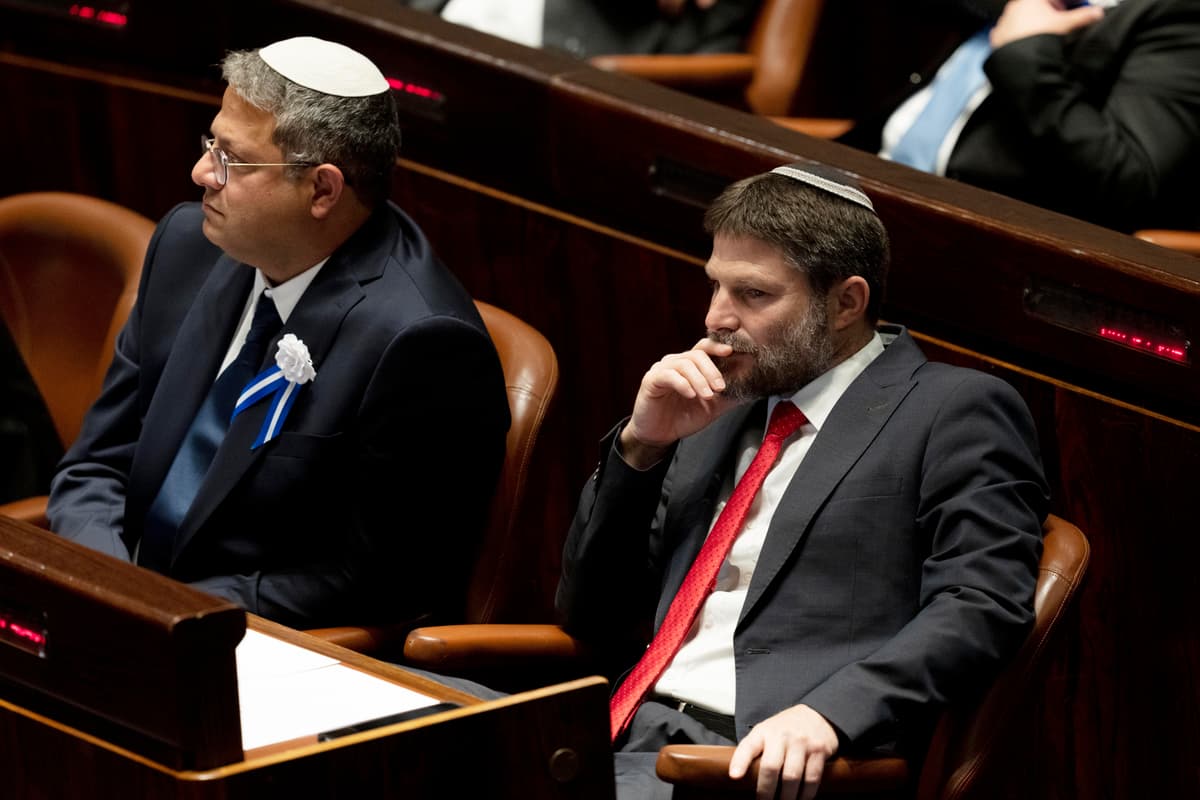The Netherlands has officially prohibited Israel’s Finance Minister, Betzalel Smotrich, and National Security Minister, Itamar Ben Gvir, from entering the country. This decision, announced by Dutch Foreign Minister Caspar Valdekamp, stems from their alleged incitement to violence and calls for ethnic cleansing in Gaza. Valdekamp stated that both ministers have repeatedly incited violence against the Palestinian population, further justifying the ban.
Both Smotrich and Ben Gvir are prominent figures in Israel’s security cabinet. They have made statements suggesting that Gaza should be cleared of Palestinians and that Jewish settlements should be reinstated. In response to the ban, Ben Gvir expressed defiance, stating, “Even if I’m banned from all of Europe, I’ll keep working for our country.” He criticized what he perceived as a double standard in European attitudes towards terrorism, claiming that while terrorists are tolerated, a Jewish minister faces exclusion.
Smotrich echoed similar sentiments, emphasizing the importance of security for Jews in Israel over his personal desire to enter the Netherlands. He reflected on the historical context of Jewish safety in Europe, stating, “Jews did not live in security at the beginning of the last century” and expressing concerns about rising antisemitism.
This ban is not an isolated incident. Earlier in June, several countries, including the UK, Australia, Norway, Canada, and New Zealand, implemented similar bans against the two ministers, citing their inflammatory rhetoric towards Palestinians.
The Dutch government’s actions follow statements from Prime Minister Dick Schoof, who warned that the Netherlands would support the European Union in suspending Israel’s participation in the EU’s Horizon research program unless humanitarian access to Gaza is improved. Schoof indicated that if conditions do not change, the Netherlands would advocate for additional European measures, including potential trade restrictions.
In response to the diplomatic tensions, Israeli President Isaac Herzog criticized Schoof’s remarks, asserting that they do not reflect the nuances of their discussions. Herzog lamented that the plight of hostages held by Hamas was not acknowledged in the dialogue surrounding humanitarian aid efforts.
On a related note, Israel has announced new initiatives to enhance humanitarian aid to Gaza. As of Saturday, tactical military pauses have been implemented to allow aid deliveries, with new permanent routes established for truck drivers. On Monday, 200 trucks filled with aid were dispatched from border crossings, marking a significant improvement in relief efforts. This included fuel deliveries from the United Nations and aid provided through cooperation with the UAE and Jordan.
Despite these efforts, reports indicate persistent challenges. According to the UK-based newspaper Al-Araby Al-Jadeed, a significant portion of aid trucks from Egypt were looted near the Morag Axis, an ongoing issue throughout the conflict. This looting highlights the difficulties faced in ensuring that humanitarian assistance reaches those in need, often complicating relief efforts in the region.
As the situation continues to develop, the impact of these diplomatic actions and humanitarian efforts remains critical for both the Israeli and Palestinian populations, with international attention focused on the evolving dynamics.





































































